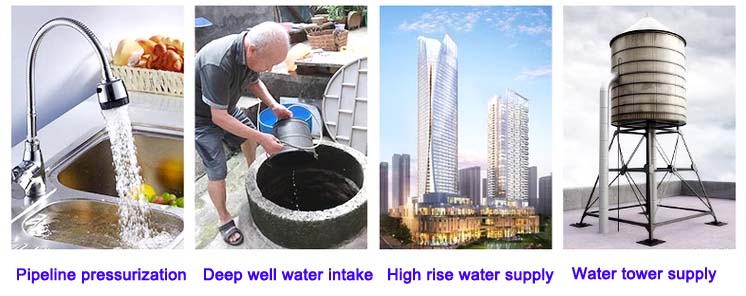Slovenian
- Afrikaans
- Albanian
- Amharic
- Arabic
- Armenian
- Azerbaijani
- Basque
- Belarusian
- Bengali
- Bosnian
- Bulgarian
- Catalan
- Cebuano
- Corsican
- Croatian
- Czech
- Danish
- Dutch
- English
- Esperanto
- Estonian
- Finnish
- French
- Frisian
- Galician
- Georgian
- German
- Greek
- Gujarati
- Haitian Creole
- hausa
- hawaiian
- Hebrew
- Hindi
- Miao
- Hungarian
- Icelandic
- igbo
- Indonesian
- irish
- Italian
- Japanese
- Javanese
- Kannada
- kazakh
- Khmer
- Rwandese
- Korean
- Kurdish
- Kyrgyz
- Lao
- Latin
- Latvian
- Lithuanian
- Luxembourgish
- Macedonian
- Malgashi
- Malay
- Malayalam
- Maltese
- Maori
- Marathi
- Mongolian
- Myanmar
- Nepali
- Norwegian
- Norwegian
- Occitan
- Pashto
- Persian
- Polish
- Portuguese
- Punjabi
- Romanian
- Russian
- Samoan
- Scottish Gaelic
- Serbian
- Sesotho
- Shona
- Sindhi
- Sinhala
- Slovak
- Slovenian
- Somali
- Spanish
- Sundanese
- Swahili
- Swedish
- Tagalog
- Tajik
- Tamil
- Tatar
- Telugu
- Thai
- Turkish
- Turkmen
- Ukrainian
- Urdu
- Uighur
- Uzbek
- Vietnamese
- Welsh
- Bantu
- Yiddish
- Yoruba
- Zulu
Telephone: +86 13120555503
Email: frank@cypump.com
Okt . 10, 2024 15:39 Back to list
Choosing the Right Septic Sewage Pump for Your Waste Management Needs
Understanding Septic Sewage Pumps
Septic systems play a crucial role in managing wastewater in areas not connected to municipal sewer lines. Central to this system's functionality is the septic sewage pump, an essential component that ensures the effective movement of sewage from the septic tank to the drain field.
A septic sewage pump is designed to handle waste that is often semi-solid or has a high water content. Unlike typical household pumps that may only deal with clear water, septic pumps are built to withstand the harsh conditions that come with wastewater. These pumps are usually submersible, meaning they are placed underwater within the septic tank, which helps in reducing maintenance issues and keeps them out of sight.
One of the key functions of a septic sewage pump is to lift the wastewater from lower elevations to higher ground, particularly when the house is situated lower than the drain field
. By doing so, these pumps ensure that waste is not only moved efficiently but also in a manner that prevents potential blockages and backups in the system. This process is critical as stagnation of sewage can lead to unpleasant odors, health hazards, and costly repairs.septic sewage pump

When looking to install or replace a septic sewage pump, homeowners should consider several factors. The pump's horsepower is paramount—it should be strong enough to handle the volume of waste produced by the household. Additionally, the material of the pump is significant. Stainless steel and thermoplastic are common materials that resist corrosion and wear, extending the pump's lifespan.
Regular maintenance is key to ensuring the longevity and performance of a septic sewage pump. Homeowners should periodically check the pump for any signs of wear and tear, and ensure that it is running quietly, as loud noises may indicate malfunction. Moreover, it's advisable to schedule professional inspections to catch potential issues early and avoid major failures.
In conclusion, septic sewage pumps are indispensable for maintaining a functional septic system. They not only facilitate the efficient movement of wastewater but also contribute to the overall health and sustainability of local environments. Understanding how these pumps work and adopting proper maintenance practices can help homeowners prevent issues and ensure their septic systems operate smoothly for years to come.
-
Heavy-Duty Mining Sludge Pumps - Wear-Resistant Slurry Handling
NewsAug.02,2025
-
Horizontal Split Case Pump with GPT-4 Turbo | High Efficiency
NewsAug.01,2025
-
ISG Series Pipeline Pump - Chi Yuan Pumps | High Efficiency, Durable Design
NewsAug.01,2025
-
Advanced Flue Gas Desulfurization Pump with GPT-4 Turbo | Durable & Efficient
NewsJul.31,2025
-
ISG Series Vertical Pipeline Pump - Chi Yuan Pumps | Advanced Hydraulic Design&Durable Construction
NewsJul.31,2025
-
ISG Series Vertical Pipeline Pump - Chi Yuan Pumps | Energy Efficient & Low Noise
NewsJul.31,2025










